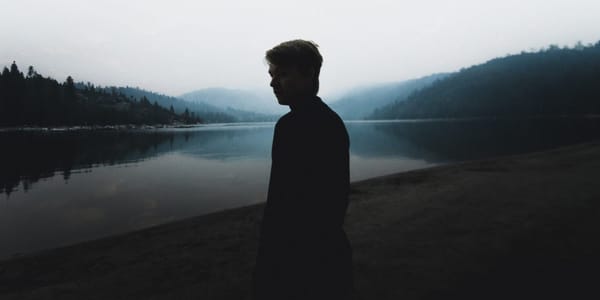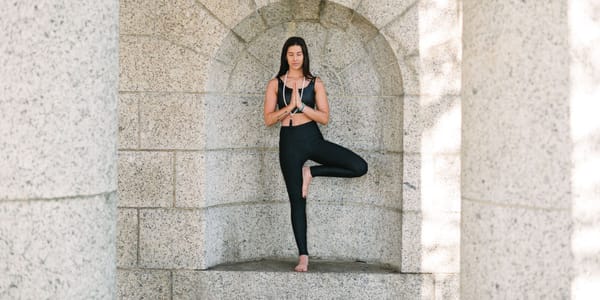Spirituality is often perceived as an escape from the difficult realities of everyday life to some peculiar "higher things" that justify inaction or poor activity. And this indeed often happens, especially in the early stages when the person is confused, asking so many questions and searching for answers, which is simply overwhelming.
But ultimately spirituality is all about being present and flowing with whatever there is, seeing beauty in the simplest activities.
After all, in the doctrine of Buddhism, the Bodhisattva is the one who has achieved but rejected the transcendental state of paradise and returned to ordinary life or maybe just realized that our so-called ordinary everyday life is exactly the same. No wonder they have a saying:
"Before enlightenment, chop wood, carry water.
After enlightenment, chop wood, carry water."
Thus, spirituality is not about reaching some wild state of "higher self" and disappearing from the world, but about freeing ourselves from the constant drama of thoughts and emotions and living peacefully in the present.
“Life is really simple, but we insist on making it complicated" as Confucius once wonderfully put it. And even if he ended up complicating many things by creating a Confucianism full of norms and ethics, limiting the simpler definition of Dao (a way or a path) by Taoists, he still has a point.
Life as a basic phenomenon is simple and joyful. When we wake up we don't have to worry about some procedure to activate our seeing, hearing, breathing, or beating our hearts. It happens naturally by itself. And the world is fine without our actions - the sun is shining, the river is flowing, the air is just there, the earth is spinning, and so on.
And yet somehow we, being such complex organisms, complex beings, managed to complicate this simple phenomenon to a spectacular extent. We are experts in worrying, playing out the drama of thoughts and emotions in our heads, creating and experiencing problems that don't even exist and suffering from them.
Nevertheless, life is simple if only we stop messing with ourselves and get back to the absolute basics of life, like breathing or sitting properly. And no school is better at teaching this than the famous school of Buddhism, Zen.
See, in Zen, they don't teach us how to pray. Nor do they have a religious doctrine that we should learn and follow. Their training begins with sitting and breathing. Yes, at first they just teach us to sit and breathe, and then maybe we'll move on to walking or doing household chores. There is a great description of Zen in the famous text The Zen Teaching of Bodhidharma:
“Not thinking about anything is Zen. Once you know this, walking, sitting, or lying down, everything you do is Zen.”
Therefore, Zen practice comes down to being mindful of the activities we perform. They even have a saying that goes somewhat like this: "When you sit, sit, when you walk, walk, when you breathe, breathe." And it applies to every other activity like working or doing life chores.
We can experience great peace and joy when we let go of mental wobble and simply surrender to what is happening.
For example, imagine waking up, going to the kitchen, and encountering a smelly sink full of dirty dishes. No one will do it for you, and it will get worse every hour - you must do something about it. Thus, after questioning your existence and thinking about throwing it all out the window, you begin this terrible chore, thinking "What a terrible start to the day."
But then you start washing the dishes for a while and all the anxiety about how terrible it is or how much time you waste on the chore slowly fades away. There is only nice and warm water, bubbles of dishwashing liquid and, most importantly, one dish at a time, which is an excellent representation of the beauty of the present moment and therefore the essence of Zen practices.
We start with a huge mess in the sink, pure chaos. But when we start washing the dishes, we create a pile of washed dishes that represents the past - it shows what we have been through. Unwashed dishes represent our immediate future. And we estimate the difficulty of the future based on dishes we have already washed, which can cause anxiety. However, after a while, we enter a state of Zen - flowing with the activity one dish at a time, following repetitive movements and not thinking about anything.
No matter how big the mess is in the sink, we end up washing one dish at a time, which is peaceful and fun. All the anxiety we experience results from calculating or evaluating how much time we will waste, how hard it is, or how unfortunate we are that we have to deal with the mess. But once we start, all the anxiety disappears and what remains is a quite pleasant activity. No wonder Seneca once wrote:
“We suffer more often in imagination than in reality."
And of course, washing dishes is just one example - the same goes for almost all other activities. As a writer, coming to this draft, I see an overall mess, pure chaos with over two thousand unnecessary words in the editor and only a few final paragraphs - it's overwhelming. But then, when I start writing, I constantly remove unnecessary words and ideas, reduce the mess to order, writing one word, one paragraph at a time, usually while sipping warm coffee and listening to music - it's fun.
Procrastination and worry accompany every unstarted activity and are washed away when we start it because there are no problems in the present moment. All worries are simply drama happening in our minds. And somehow we are addicted to playing with the drama - with the monkey mind that wants to keep us occupied and play with us all the time.
However, all we have to do not to let the monkey mind win is to remember that whatever we have to do will not be as terrible as we imagine. It will always be one dish, one brick, one word, one paragraph, one push-up, one squad, one task at a time. And all the actions are usually quite pleasant because life isn't as bad as we sometimes imagine.







